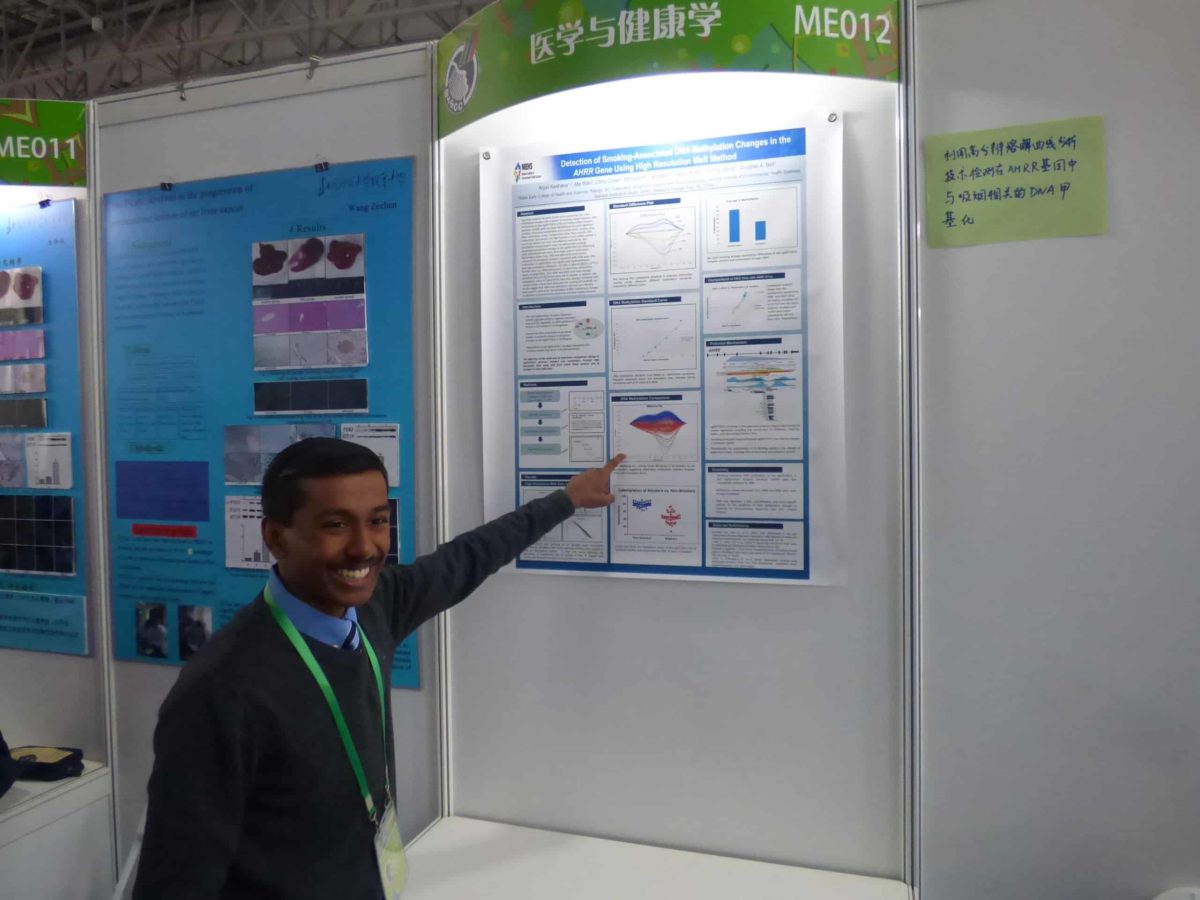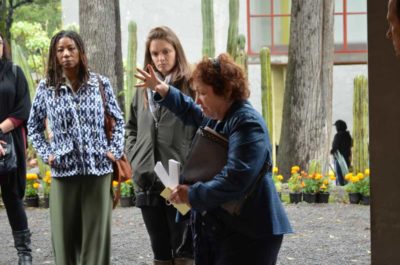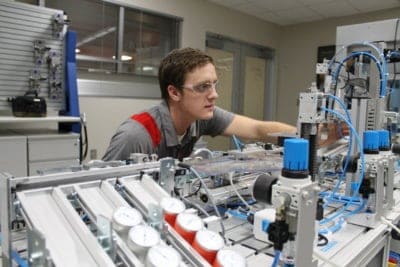
If two people play a word association game and start with the word ‘research,’ more than likely, the other person may respond with the word, ‘university.’
This is because most people understand that part of the mission of most universities is to conduct research. However, in North Carolina, research is being conducted by students attending institutions commonly associated with workforce development or educating at-risk students like community colleges, cooperative innovative high schools, and early college high schools.
Arjun Keshava, a student at Wake Early College of Health and Sciences, was one of four North Carolina students to participate in the 2017 Beijing Youth Science Creation Competition. Arjun presented research on the DNA methylation status in smokers and non-smokers. When Arjun was asked about his research and participating in this year’s science competition, he made a simple, yet profound statement. “If more students were presented with the opportunity and the resources, then, I believe more students would take part in research.”
Arjun’s statement and the learning benefits of conducting research (deeper knowledge of subject, problems solving skills, developing an inquisitive mind) inspired the NC Community College System office to investigate the current state of undergraduate research at cooperative innovative high schools or early college high schools and at community colleges.
Cooperative Innovative High Schools (CIHS) and Early College High Schools are defined as schools that target students who are at risk of dropping out of high school, first-generation college students, and/or students who would benefit from accelerated learning opportunities. Currently, North Carolina has 112 CIHS, 77 of which are directly affiliated with a community college. Students at these schools simultaneously work toward completion of both the high school diploma and an associate’s degree.
A survey tool was distributed to the State’s CIHS inquiring about undergraduate research at their institutions. Thirty-six of the 77 CIHS affiliated with community colleges responded to the survey. Of the three, 14 responded that they currently have faculty involved with students conducting research. Twenty-two responded that they did not have any research on-going but would like to explore how to support student research in the future. Of those who indicated that they had ongoing efforts or that they were interested in supporting research in the future, 19 reported that the greatest challenges to supporting student research efforts were lack of funding (20 out of 36) and lack of industry or faculty mentors (16 out of 36). Additionally, only seven of the respondents knew about the NC International Science Challenge that selects North Carolina students to participate in the Beijing Youth Science Creation Competition.
The survey, which was far from scientific in its execution, does demonstrate that interest in supporting student research exists within NC’s CIHS. However, funding and industry support is needed to scale efforts across the state at CIHS outside more urban areas. Arjun’s statement was on target. Iff funding and resources existed, perhaps undergraduate student research at CIHS could be expanded.
Part of the NC Community College System’s investigation also included surveying the 58 colleges to learn what, if any, student research activities were occurring. The response was light, but the colleges that are involved in research are doing so at a level typically seen at four-year research universities.
Wake Technical Community College reported that their Natural Sciences Department was involved in a variety of collaborative projects with universities in the state. One project is in collaboration with a North Carolina Central University professor exploring genetic factors affecting alcoholism or the Drunk Fruit Fly project. Another project is a collaboration between an NC State University post-doctoral fellow and Wake Tech faculty and students investigating microalgae to produce biofuels. Wake Tech faculty and students are also partnering with Lee Community College in Texas that involves a citizen-science project that acts as an early detection system for antibiotic resistant bacteria present in the environment.
Sandra Dietrich, Vice President of Curriculum Education Services at Wake Tech, described the Mathematics, Sciences, and Engineering Division’s undergraduate research program’s primary goals are to increase students’ retention and success in the Associate of Science and Associate of Engineering transfer programs and to improve scientific, quantitative, and engineering literacy.
Students actively participate in faculty-mentored, co-curricular, real-world situations and professional development that will enrich their academic experience and prepare them to be competitive at a four-year institution and in the STEM workforce. In 2016, the college completed a new interdisciplinary STEM Lab created specifically for co-curricular undergraduate research and the “Collaboratory,” an adjoining student meeting space designed to spur creativity, collaboration, and interdisciplinary discussion. In January 2017, Wake Tech’s Natural Sciences Department released the first volume of its Undergraduate Research Journal, “EUREKA!,” containing four articles by five students on topics ranging from antibiotic resistant bacteria in local streams to microbial abundance found on paper towel dispensers.
Ashley Hagler, biology instructor at Gaston College and the 2017 Excellence in Teaching Award winner, was instrumental in developing the SPARC3 program at her college which emphasizes engaged instructional activities such as student research. Through the SPARC3 initiative and as a part of the college’s Associate of Science program, the college has approximately 40 to 50 students each semester who conduct research for honors credit. Additionally, almost every student enrolled in Gaston’s Associate of Science program has at least one research experience that is embedded within their course of study.
Undergraduate student research is not limited to just the larger urban community colleges in North Carolina. A few of the system’s suburban and rural colleges are also conducting research. At Mitchell Community College in Statesville, students and faculty are involved in a research project that is supported by a federal grant from the U.S. Attorney’s Office called Project Safe Neighborhoods, a deterrence-based violent gun and gang crime initiative. As the designated research partner and external evaluator for Statesville Police Department (grant applicant), Mitchell Community College’s Criminal Justice Department students will assist with the collection and analysis of crime data, data entry, and reporting. Brunswick Community College has a research project underway investigating lake water quality and Alamance Community College has a student working on a project in collaboration with the Joint School of Nanoscience and Nanoengineering at North Carolina Agricultural and Technical State University and the University of North Carolina at Greensboro.
Interest in integrating research into curriculum planning at cooperative innovative high schools, early college high schools, and community colleges is strong and growing in the state. This type of instruction can not only provide immeasurable benefits to the student researchers, it also has the potential to boost student interest in STEM careers.
However, to foster more student research projects at these institutions, several barriers must be overcome, including funding professional development on initiating and sustaining student research, identifying industry mentors, availability of lab facilities, and igniting student interest in research. If these challenges can be overcome, then expanding undergraduate research opportunities to student populations at cooperative innovative high schools, early college high schools, and community colleges across North Carolina is possible.
Recommended reading



